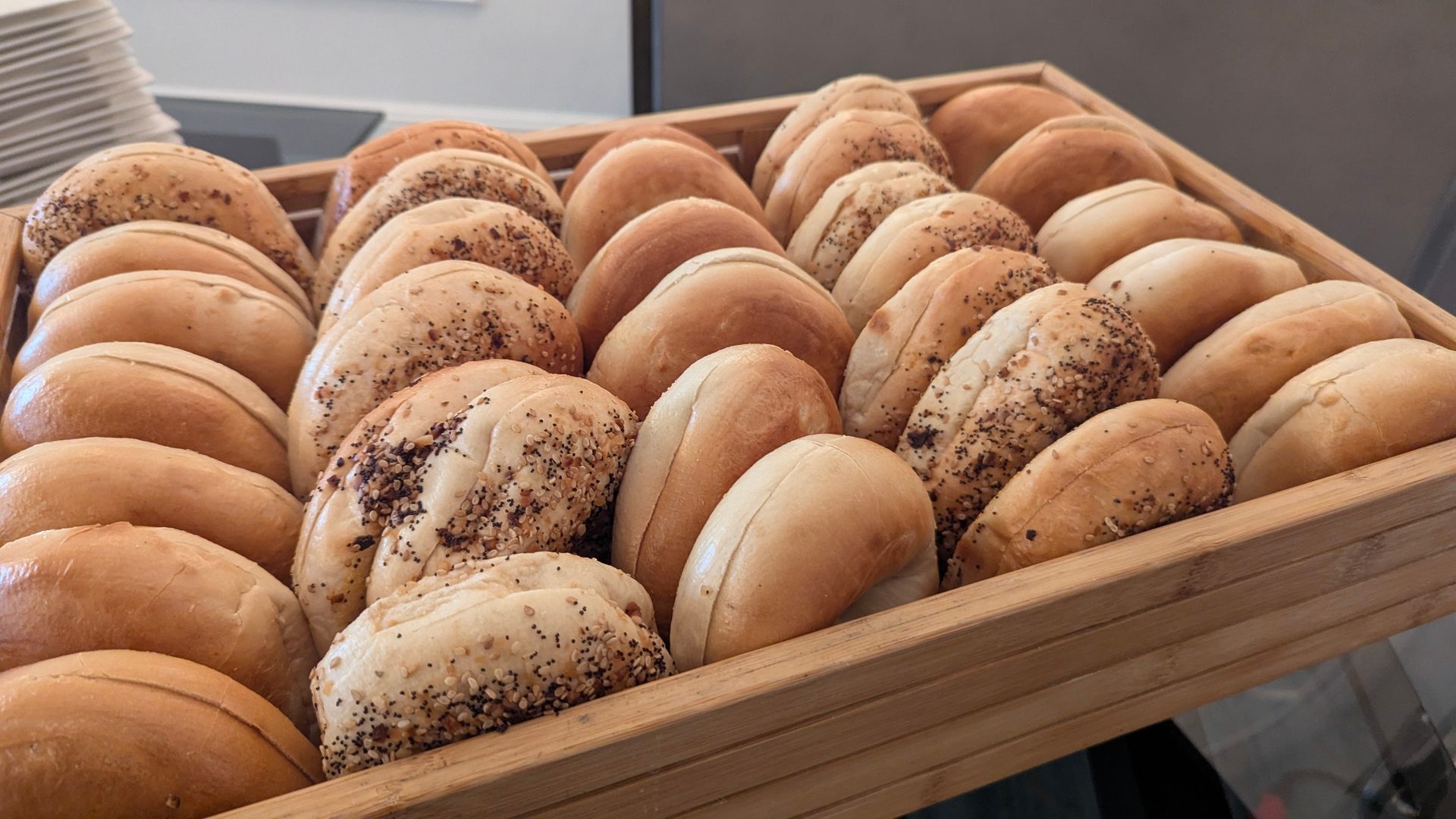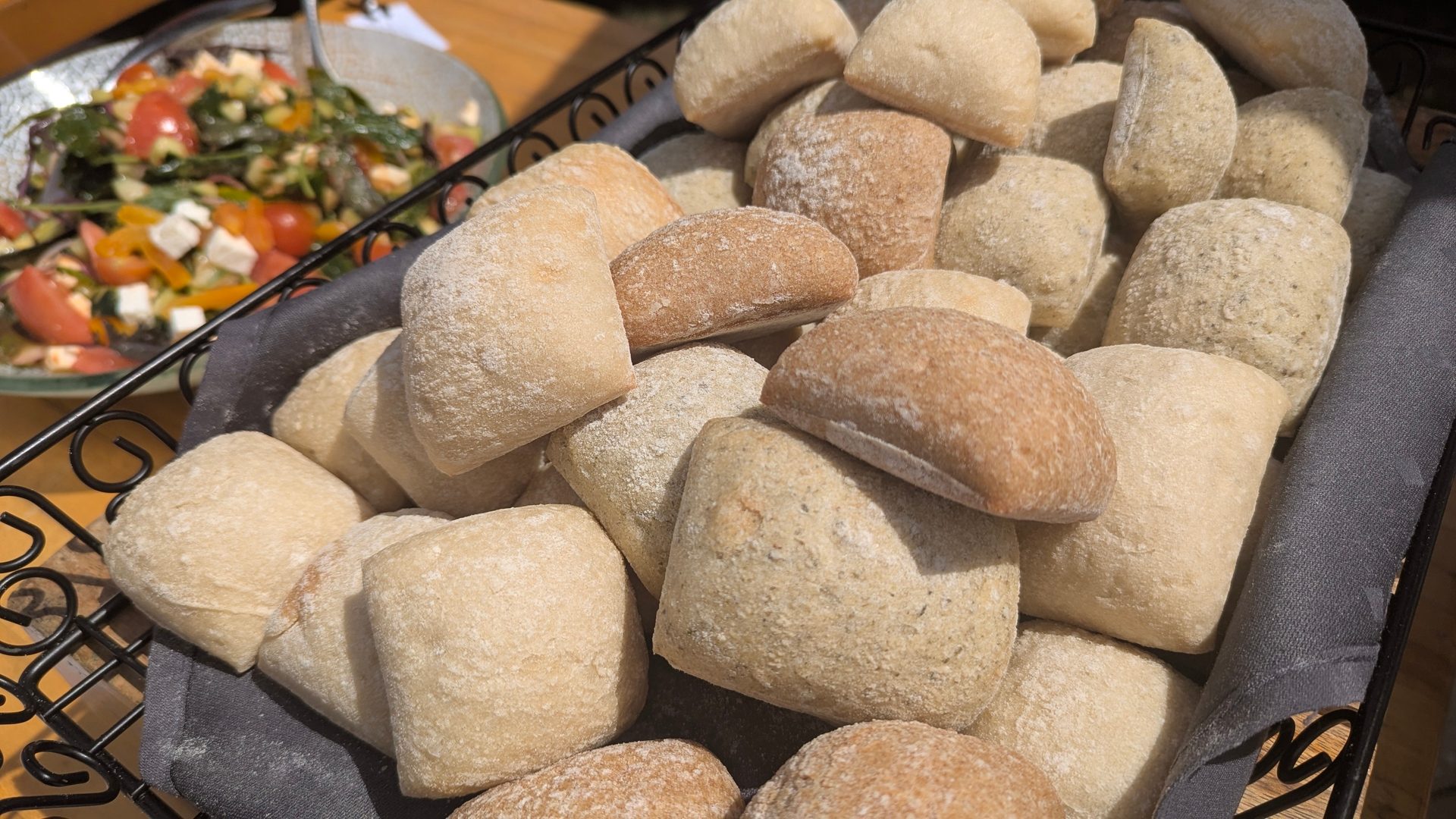
State of the Industry
BAKERy
2025



Cover video courtesy of FabrikaCr via CreatasVideo+ / GettyImages Plus
The BOTTOM LINE
- Federal policy impacted the bakery business over the past year
- Challenges with increasing costs, labor, and tariffs will in all likelihood continue
- A proactive approach to these myriad issues will be key to continued success
Ready for anything
Times might be uncertain, but bakers are certainly preparing themselves for emerging challenges.
Jenni Spinner, Chief Editor
In an address during the recent American Bakers Association (ABA) Convention, president and CEO Eric Dell told the industry leaders in attendance that these are uncertain times, and that business generally does not react favorable to uncertainty. The truth in those words might be far from controversial, but another fact that is undeniably true: bakers are nothing if not resilient. Through recessions and depressions, a global pandemic, labor woes, and the threat of tariffs, companies in the field continue to roll with the punches as they come, bouncing back every time.
That doesn’t mean, though, that the months and years ahead will not be stress-free for bakers. Obstacles like rising materials costs, workforce shortages, tariffs, and others are likely to continue. In order to succeed, producers of bakery goods will have to brace themselves and be ready for anything.
In order to get a better grasp on current baking industry trials, and on what the coming months might bring, Snack Food & Wholesale Bakery checked in with experts at leading bakery groups:
- Eric Dell, president and CEO
- Rasma Zvaners, vice president, government relations

Courtesy of Jenni Spinner
Jenni Spinner: Could you please share a brief overview of the year in baking—what were some of the common threads running through the industry in 2024? Specifically, what were some of the biggest challenges that producers had to wrangle with?
Eric Dell: Looking back at the past year, several policy areas had significant implications for the commercial baking industry. One of the biggest challenges in the commercial baking sector was ensuring that legislative policies fostered sustainability and business growth so that baking manufacturers could continue producing the safe and nutritious products that Americans in all communities depend on.
A stable and safe supply chain to ensure food security was an important concern of the commercial baking industry. Issues related to tax, tariffs and port strikes had the potential to impact the industry’s supply chain and ABA was able to proactively advocate on baking manufacturers’ behalf to help address these challenges.
Navigating the evolving nutrition policy landscape was also a top issue for the industry. The FDA moved forward with redefining what it means for a product to be labeled “healthy,” and prepared new proposals for front-of-pack labeling ABA was deeply engaged in those conversations, advocating for science-based, practical approaches that reflect how Americans eat.
At the same time, the Dietary Guidelines for Americans were under review. As the leading voice in the “Grain Chain,” ABA submitted comments supporting the nutritional value of grains.
We saw federal and state activity around regulatory oversight, from OSHA’s proposed heat safety rules to expanded “walkaround” inspection policies and extended producer responsibility legislation in states like Minnesota. ABA worked to uphold safety without compromising the innovation, job creation, and affordability that drive the commercial baking industry forward.
Workforce challenges continued to be top of mind. ABA research projected more than 53,000 unfilled roles in the commercial baking industry by 2030 if current trends hold. That’s why we were active on labor policy, including supporting flexibility around independent contractor classifications and opposing one-size-fits-all mandates that don’t reflect the dynamic landscape of our workplaces.
Finally, we fought hard to preserve essential tax provisions that allowed our members to modernize facilities, create jobs, and stay globally competitive. Without Congressional action, those advantages were on track to disappear.
2024 was about championing the baking industry so manufacturers could stay nimble and unified despite growing regulatory, legislative, and workforce headwinds. The common thread was clear: advocacy is more important than ever, and the commercial baking industry is committed to the mission of providing nutritious and delicious meals for Americans.




Courtesy of Jenni Spinner
JS: Please share some of the ways in which bakery operations have worked to meet and overcome those challenges or mitigate the effects.
Rasma Zvaners: To meet and overcome the commercial baking industry's challenges, the commercial baking supply chain took a proactive, unified approach through direct advocacy and engagement with policymakers. A key example was the 2024 Bakers Fly-In and Policy Summit, where baking professionals visited 42 Capitol Hill offices to address critical issues impacting operations nationwide.
They advocated against the OSHA rule allowing third-party participation in workplace inspections. Bakers and allied members pushed for reforms to the U.S. sugar program to respond to changing market conditions and address sugar supply imbalances that could increase food prices. Finally, they defended consumer choice within the SNAP program, emphasizing that the restrictions could harm the efficiency, efficacy, and dignity inherent in the program.
JS: It seems 2025 is shaping up to be challenging in its own right—could you please talk about the ways in which the coming months might be looking for the baking industry? Please feel free to talk about ongoing issues, new ones, worsening ones, etc.
RZ: In 2025, ABA is focused on strengthening its advocacy efforts in Washington, D.C., ensuring that the voice of the commercial baking industry is heard on the issues that matter most to our members. We’re actively engaging with the administration, Congress, and key stakeholders to advance policies that support growth, drive innovation, and protect our ability to feed communities nationwide. From nutrition and tax to trade and workforce, ABA is focused on building bipartisan support and keeping the industry’s priorities front and center in today’s fast-moving policy environment.
JS: Your organization works to help bakery operations deal with existing challenges, face emerging issues, and anticipate new things. Could you please talk about the ways in which you’re equipped to provide bakers with such resources?
ED: At ABA, we advocate for and serve baker and allied businesses across the entire baking manufacturing community, offering resources that support their success and long-term growth. As the champion of the industry, our mission is to position it for a strong, sustainable future. Central to this mission are three strategic priorities driving the commercial baking industry forward: Destination Workplace, Category Growth, and Higher Level Impact.
Commercial baking is creating an industry-leading destination workplace environment by promoting career awareness, effective workforce practices, and policies that strengthen talent recruitment and retention. In category growth, the industry is demonstrating the role of baked goods with consumers and policymakers by improving food security, showcasing innovation, and highlighting the industry’s community impact. Finally, higher level impact focuses on delivering high-value programs, strong association culture, and uniting the industry around shared priorities.
- Advocacy: Representing the industry's collective voice, ABA works closely with policymakers, guided by input from its members to ensure commercial baking interests are represented at every level of government. Each year, ABA has commercial baking industry leaders from across the country fly into Washington, D.C., to meet with lawmakers and advocate for policies impacting their businesses.
- Events: ABA events bring the baking industry together to connect, collaborate, and grow. From entry-level employees to executives, members benefit from both virtual and in-person gatherings tailored to the industry's evolving needs. Signature events like IBIE 2025 and the 2026 ABA Convention offer networking and insights, while specialized events and professional group meetings focus on emerging trends and critical issues. These events not only keep the industry informed but help build the relationships and strategies that move commercial baking forward.
- Professional Development: The future of commercial baking relies on attracting, training, and retaining skilled talent. To support this, ABA offers a range of exclusive professional development programs, recruitment tools, and leadership training—helping members build a strong, capable workforce at every level. From career path guides to initiatives like NextGenBaker and supervisor training, ABA is committed to growing the industry’s next generation of leaders.
- Research: ABA’s member-only research provides baking specific insights into consumer trends, behaviors, and the industry's economic impact. From benchmarking talent development strategies to highlighting the baking sector’s support of nearly 800,000 American jobs, ABA equips bakery and supplier businesses with the data they need to make informed decisions, drive innovation, and fuel growth.
Image courtesy of Natalya Maisheva via iStock / GettyImages Plus
“The commercial baking industry is committed to the mission of providing nutritious and delicious meals for Americans.”
— Eric Dell, president/CEO, American Bakers Association




